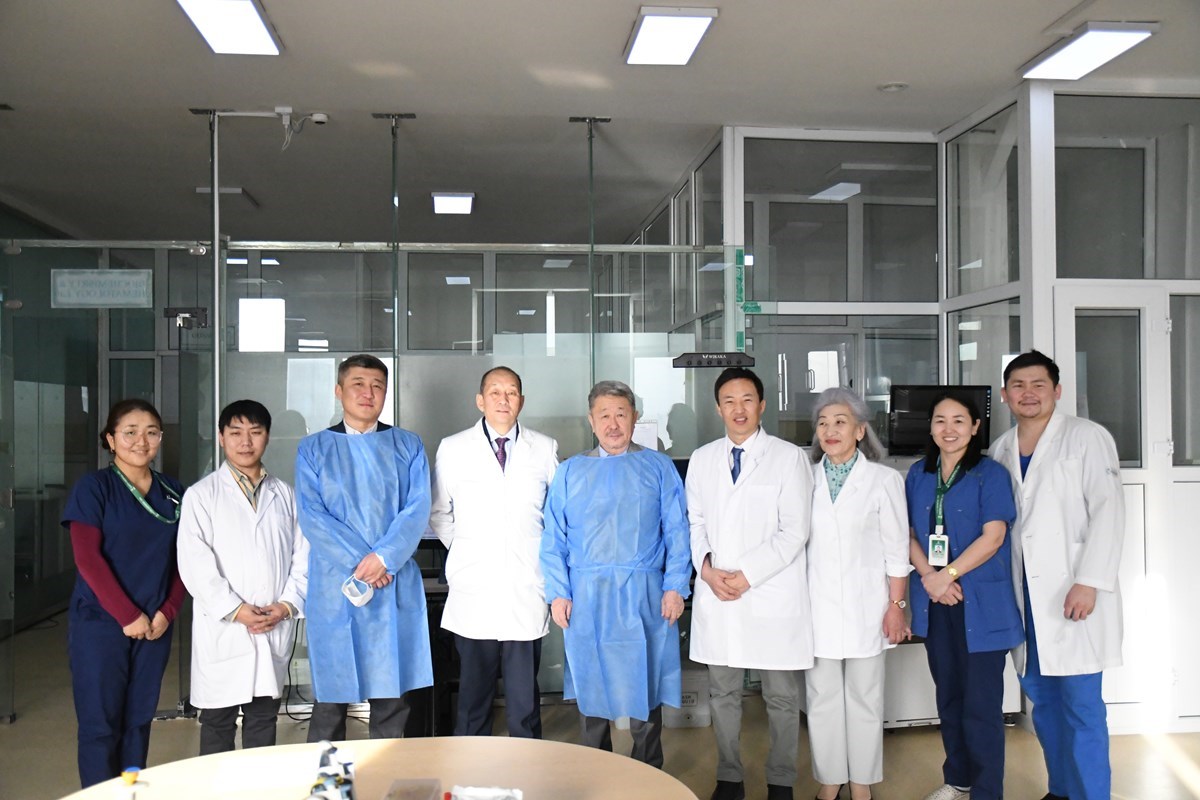
President of the Mongolian Academy of Sciences Regdel D. and
Director of the Institute of Biology of the Mongolian Academy of Sciences Gantulga
D. met with the Mongolian Genome project team.
Dr. Amarsanaa J., the project leader, made a presentation on the implementation and the significance of the project.
.jpg?w=1200)
The Mongolian Genome Project is important to contribute to the sector covers medicine, oncology, biology, genetics, environmental protection, rehabilitation, anthropology, Genghis Khan studies, agriculture, animal husbandry, food science, law, virology, microbiology, and history.
In particular, it will be possible to diagnose and treat inherited diseases and birth defects. It will be possible to accurately determine the genetic mutations of cancer. Provides access to cancer treatment options. In Mongolia, the immune cells will be one of the key technologies needed to treat cancer. It lays the foundation for the development of individualized medicine. It will make a significant contribution to determining the origin of the Mongolian people. Will create new genetic evidence in Genghis Khan's research. High-precision identification of issues and inbreeding in Mongolia will begin. It is possible to accurately determine many characteristics, such as individual metabolic characteristics, mental and physical biological abilities, immune characteristics, disease and stress tolerance. The foundation for the development of epigenetic science in Mongolia will be laid. It will be possible to identify genetically modified foods. It will be possible to read and identify the genome information of very rare and endangered animals and plants. Contributes to the study and improvement of fast horses, goats and livestock breeds. There will be an opportunity to solve some issues of crime detection and forensic medicine. It will make a valuable contribution to the identification of pandemics, viruses and bacteria, and to the development of diagnoses and treatments.
.jpg?w=1200)
Although there is no public-private partnership regulation in Mongolia, researchers from the two organizations began initial talks today on joint research on the Mongolian genome.
